Interview with Maria Striar
Andy: Let’s talk about some of your ongoing collaborations with artists.
Maria: We have artistic relationships of all provenances. Some of our collaborations are with playwrights, and other artists sought Clubbed Thumb out, or we sought them out, or someone sent them our way. We have collaborations built from relationships formed in college, or grad school, or from performing outside of Clubbed Thumb. Some relationships are more official, and some are friendships, and many lie in the murky middle.
Meg (with whom I started Clubbed Thumb, and with whom I ran it until last year) and I are actors, or perhaps more to the point, actresses. This informed so much about Clubbed Thumb, from how we ran it to how we read and chose plays. I haven’t performed in a Clubbed Thumb play for some years, because I couldn’t figure out how both to burrow in and maintain the bird’s eye view that I needed to do both jobs at once. And although many people don’t know me as an artist, that’s how I think of myself, and I approach Clubbed Thumb collaborations on a peer-to-peer basis. I try to keep the conversations going on those terms, although it’s not always successful.
Andy: One thing that I’ve felt in our previous conversations is how much you think of your position as a producer and artistic director as a creative position.
Maria: Perhaps it is because Clubbed Thumb is so small that producing feels like a creative act; we have to be resourceful, and therefore imaginative. Necessity is the mother of invention is my favorite cliché. So on a practical level—as a producer, I not only feel creative, I most absolutely must be—we don’t have the money to materialize the literal, first-pass idea. Even administratively, we have to be, we want to be inventive. We continually re-evaluate how we do things, and figure out if there‘s a more effective, more interesting way of doing something—which means there is not much that we do by rote.
As a producing artistic director, I have a curatorial and editorial role as well. I choose each play, a season, and put together artistic teams and staff, and then try to guide the plays through development and rehearsal processes. It’s not the same interpretive process as that of a designer or an actor, because I can’t impose my opinions the same way; my job is to respond, to pose questions, to figure out the map we are making together so I can stay one step ahead of the game, anticipate practical issues, play devil’s advocate, et cetera. I have to step outside a little bit, so that the primary team doesn’t have to. Now, I certainly have my opinions and absolutely share them, but the crux of the job is responding, continually, to the thing as it comes into being, rather than exerting a heavy, shaping hand.
It feels quite visceral. I’m drawing from all parts of myself—my experience and my critical faculties and my social skills and my imagination—to be a flexible resource for every project, from the initial conversation through everything that follows.
Andy: It’s about being personal I think, that’s part of the creativity, that you’re not making decisions based on what you think the world needs to see, but you’re making decisions on what you think is important to you.
Maria: Well, of course the two overlap. I can only see out of my own eyes, right? I feel compelled, for example, to produce plays that are often by women, or feature women in meatier, more complex roles than is the usual, and that is in part because I regularly experience the lack of this material, of this point of view. And I think that’s a grievous lack, and something from which the world is truly impoverished by. But I also feel the material that addresses this lack (and I do not mean directly, as a subject matter) is often the most interesting. It’s less well-trod terrain, it’s so often surprising, and the less-familiar voices often come in less-familiar forms, which is exciting.
Now when we program Summerworks, we try to pick plays that are very different from each other, that represent different strands in contemporary theatre. I read plenty of plays that I think are really great, by really talented writers, but are not within the aesthetic vocabulary of Clubbed Thumb. Somebody else is going to be a better producer for these plays. It’ll be better for their audience, and it’ll be a collaboration that has more juice to it. I try to be honest about this in my correspondence with those who submit plays to us.
The act of making theater from a play is not one of literal transcription, where everyone is there to reproduce the thing a playwright hears in his head... most of the time, I am frankly moved by how well collaboration is embraced, and how rich and surprising its outcome is.
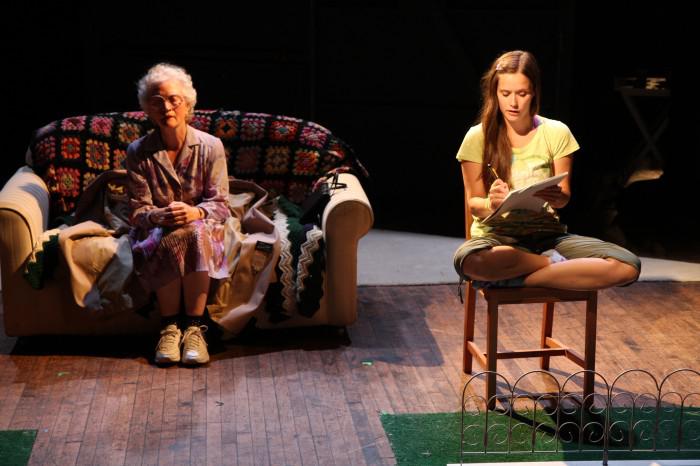
Andy: What are ways in which a writer might be frustrated with Maria Striar and Clubbed Thumb, and what are ways that Clubbed Thumb might be frustrated with a writer?
Maria: If I believe something, I will keep on stating it. I won’t insist that it be acted on, but I will keep saying it. I will nag someone for revisions, especially if we are nearing a rehearsal process. There are certain types of revisions, structural revisions, that are very hard to accomplish once a play is in rehearsal. There are playwrights with whom Clubbed Thumb has a friendly relationship, but we‘ve read many plays and haven’t agreed to produce one yet. I’ll keep saying we’re looking for the right match, and I know that is frustrating to hear.
I am frustrated when playwrights really make me chase them around for drafts and revisions—I’m not their mother! I accept that part of the gift you are giving as a producer is imposing deadlines, but being put in the nagging parental role can be a drag, and sometimes you really want people to accept more responsibility for themselves and exert more agency. In fact, I always want that, from almost everyone in the world. I prefer to have transparent conversations, in which conflict, if it exists, is acknowledged and addressed, in which we each take responsibility for our own shit… but we are not all strung together that way, are we?
The other thing that I find frustrating is when people—playwrights, largely, but this can be true of anyone—won’t embrace the collaborative opportunity. The act of making theater from a play is not one of literal transcription, where everyone is there to reproduce the thing a playwright hears in his head, exactly. Nor is it a process whereby you show up with an idea at the beginning of the rehearsal period, whether it is a drawing or a concept or a character—and then just will not amend it in response to what’s happening. Now, this is unusual—most of the time, I am frankly moved by how well collaboration is embraced, and how rich and surprising its outcome is.
Andy: I’d like also to talk about how you work with commissions. We’ve had a very interesting experience together, one where there have been multiple drafts over many years, some frustration on both of our ends, and a lot of positive things.
Maria: You’ve been such an engaged partner, and that’s really been a phenomenal experience for me. We’ve had really open conversations about it.
We try very hard to produce the plays that we commission, but I’m still learning how to responsibly navigate that. A play starts out, and you don’t know where that play is going to go, and Clubbed Thumb has these specific parameters, and if the play is growing into, say, a two hour play, it’s got to able to grow into that play, you’ve got to let it be what it’s going to be. I try and give advice that fits the play, as opposed to imposing a Clubbed Thumbification of the play. Honestly, it’s a hard call sometimes.
Andy: I think for a writer commissions can also get complicated. Personally I’m grateful that we didn’t do my play in 2009, after that first workshop. It wasn’t ready at the time. And last year, I was frustrated as much with myself as with anyone else, because I thought my ambition was getting in the way of my art. Choosing to take some time away from the process, to take control of it as opposed to following some kind of timeline, was certainly valuable for me.
Maria: We produced some of our commissions too early, I think. They were still growing. I don’t believe in waiting until every little thing is nailed down, but there are plays that we put up and I said to myself, God, how did we not manage to address some of these things?
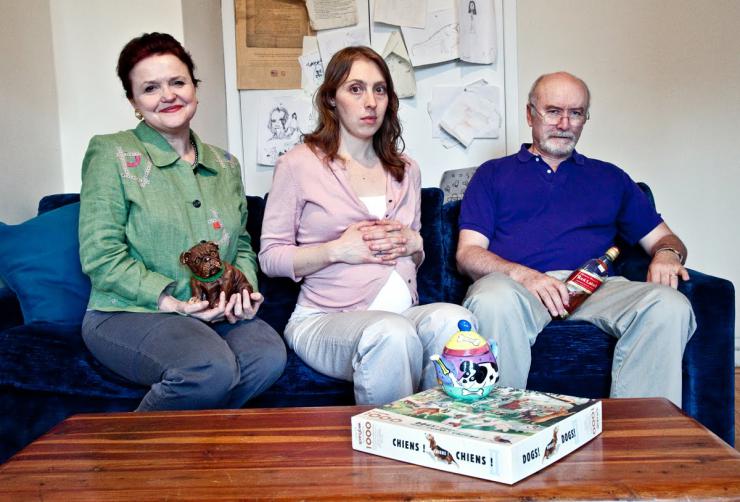
Andy: If Summerworks is only six performances, is it a place where plays can come in and make those discoveries, where it’s not perfect, and launch it from there? Is it a place where that kind of—I hate to use the word—failure, is allowed? Or is it a place where things need to be done before they enter it?
Maria: It’s absolutely a place where one should make discoveries. Ideally, every play is unsettled in some aspect, but not completely unsettled, and ideally every play is not in exactly the same state. That would create a chaotic environment, if each play were unresolved in the exact same way—three plays with no endings, say—thinking that just gave me a stomach ache.
Andy: As you know I had two commissions at the same time, one from you, and the other from the University of Rochester, which, partly because it was a university program, committed itself to producing the play before I’d even started it. There was something incredibly terrifying and liberating about that, this idea that the play might or might not work, that it might be an utter disaster, and yet, it worked out wonderfully. There’s a large part of me that wants to go: “Maria, commit to my fucking play. Trust me.” What does it mean when a theatre says “okay, we’re just doing this play no matter what” or “no we need to keep moving slowly, step by step”?
Maria: I guess some theatres say, “I don’t care what it is, we’re just going to put it up,” and that’s awesome. But I mean, honestly, it’s a big deal to put on a play. It’s a huge effort, it costs a ton of money, you are going to have to live in it for months, every little inch of it, and you are going to stand by it, and by every person who you invite to be a part of it, from actor to audience. It’s a major commitment, and I feel that playwrights might do well to take a little trip into the administrative office of a theater and see these people who are working their tails off, round the clock, to make it possible to put up a play, and who are passionately committed to making someone else’s vision manifest. It’s actually kind of a beautiful gift, and I think that has gotten a bit lost in the Outrageous Fortune* conversations.
But back to the point. Each play has different issues that inform whether or not you feel you can commit to them. When you say yes to a play, you are saying yes to the play as it is. And you might have some really strong ideas as to places that it should go, but you have to accept that might not happen.
There are plays that contain content—a scene, a character, whatever—to which you have a reaction, whether it’s aesthetic, whether it’s moral, that makes you not want to produce the script, if that’s in there. Or maybe there’s a structural problem, and I do not believe major structural issues can be worked out in rehearsal. Or maybe the play is not focused. I’ve been through many rehearsal processes in which at a certain point it becomes clear that, on a fundamental level, we don’t know what this play is saying. I’m not saying plays need to have a clear, literal take-home that nobody can miss no matter who they are but there’s room between that and, say, a grab bag of whimsy, a play with bunch of interesting ingredients that haven’t really been rigorously grappled with.
Sometimes it feels as though a step, a level of exploration is being missed, and while I’m okay with that in a Summerworks production, I also know that it can be hard to burrow back into a play after production. And, no matter how we stress that Summerworks should be a supportive low-stakes environment in which people should take risks, New York is New York and Summerworks has become a major venue for new work. I don’t want a play or a playwright to be damaged by being exposed at too early a stage.
A show has to be ready to be in production, because when it is a production it is part of the public conversation. If you don’t want to be part of the public conversation, if you want to be protected from that, then you should do a reading in your living room.
*London, Todd, Ben Pesner, and Zannie Voss. Outrageous Fortune: The Life and Times of The New American Play. New York, NY: Theatre Development Fund, 2009.



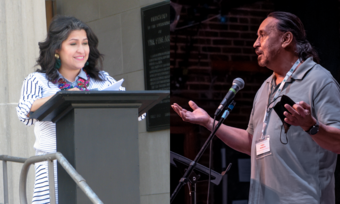


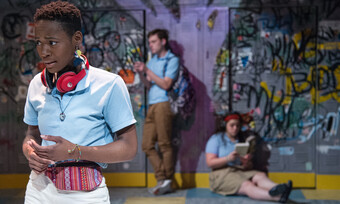


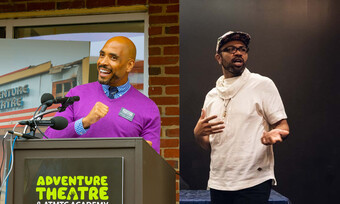
Comments
The article is just the start of the conversation—we want to know what you think about this subject, too! HowlRound is a space for knowledge-sharing, and we welcome spirited, thoughtful, and on-topic dialogue. Find our full comments policy here